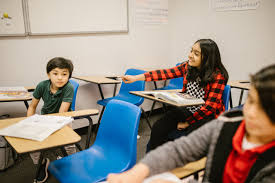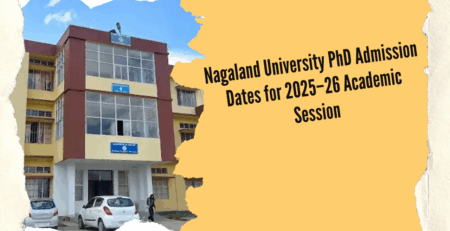Official: Students should adapt to changing times
Kenfra Research2023-08-25T16:35:03+05:30“Official: Students should adapt to changing times” seems to be a statement indicating that educational institutions or authorities believe that students should be prepared and willing to adjust and learn in response to the evolving circumstances and challenges of the modern world. This sentiment aligns with the idea that education should not only focus on imparting static knowledge but should also equip students with skills, critical thinking abilities, and a flexible mindset that enables them to navigate the changes and uncertainties of the present and future.

Technological Proficiency: As technology continues to advance, students should stay updated with the latest tools and digital platforms relevant to their fields of interest. This might involve learning new software, programming languages, or online collaboration tools.
Critical Thinking and Problem Solving: Rapid changes often bring new problems and complexities. Students should cultivate critical thinking skills to analyze and solve these challenges creatively and effectively.
Lifelong Learning: Embracing a mindset of continuous learning is essential. Students should be open to learning new subjects and skills throughout their lives, not just during their formal education.
Interdisciplinary Knowledge: As traditional boundaries between disciplines blur, students can benefit from understanding connections between different fields. This can lead to innovative solutions and a broader perspective.
Cultural Awareness and Diversity: Changing times often involve greater interconnectedness among diverse cultures. Students should be culturally sensitive and develop skills to collaborate with people from different backgrounds.
Flexibility and Adaptability: Adapting to change requires flexibility in one’s approach to learning and problem-solving. Students should be comfortable with ambiguity and quick shifts in direction.

7. Soft Skills: While technical skills are crucial, soft skills like communication, teamwork, adaptability, and emotional intelligence are equally important in a changing world.
8. Ethical Considerations: Changing times may raise new ethical dilemmas. Students should be prepared to think critically about the ethical implications of their actions and decisions.
9. Global Challenges: Current times are marked by global challenges such as climate change, public health crises, and socio-economic disparities. Students should be aware of these issues and consider how their actions can contribute to positive change.
10. Entrepreneurial Mindset: Encouraging innovation and entrepreneurship can help students create opportunities for themselves and others in rapidly evolving industries.
However, it’s also important to acknowledge that the responsibility for adaptation is not solely on the shoulders of students. Educational institutions, policymakers, and employers also play a significant role in creating an environment that supports and facilitates the process of adaptation. This includes providing access to quality education, training opportunities, and resources that empower individuals to stay current and competitive.
In conclusion, the idea that students should adapt to changing times reflects the reality of a dynamic world and the necessity of continuous learning. While this perspective has its merits, it’s important to consider the broader context and support systems that enable individuals to successfully navigate these changes.








Leave a Reply